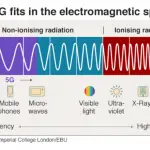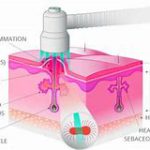Last Updated on 11 months by Francis
Negative ions are negatively charged particles that are found in the air and are believed to have various health benefits. Negative ions are produced naturally by thunderstorms, waterfalls, and oceans, among other things. They are also emitted by certain electronic devices, such as air purifiers and ionizers. In this article, we will explore the science behind negative ions and their potential health benefits.
Negative ions are believed to have a positive impact on our health and well-being. While they may be a lesser-known factor in overall health, many people believe they can enhance our mood, improve our sleep, and even boost our immunity. In this discussion, we will explore the potential benefits of negative ions and examine whether or not they are truly good for our health.
Contents
The Science Behind Negative Ions
Negative ions are atoms or molecules that have gained one or more electrons, giving them a negative charge. They are abundant in nature, particularly in outdoor environments such as forests and near waterfalls. Negative ions are believed to have various health benefits because they can interact with the body in different ways.
When negative ions are inhaled, they are absorbed into the bloodstream through the lungs. Once they enter the bloodstream, they can interact with the body’s cells and tissues in various ways. Negative ions are believed to neutralize free radicals, which are unstable molecules that can damage cells and contribute to the development of diseases such as cancer and heart disease.
Negative ions are also believed to increase the production of serotonin, a neurotransmitter that is associated with feelings of well-being and happiness. Serotonin is essential for regulating mood, appetite, and sleep, among other things. Negative ions have been shown to increase serotonin levels in animal studies, but more research is needed to determine whether this effect occurs in humans.
The Benefits of Negative Ions
Negative ions are believed to have various health benefits, including:
-
Improved Mood: Negative ions are believed to increase the production of serotonin, a neurotransmitter that is associated with feelings of well-being and happiness. Serotonin is essential for regulating mood, appetite, and sleep, among other things.
-
Reduced Stress and Anxiety: Negative ions have been shown to reduce levels of cortisol, a hormone that is released in response to stress. High levels of cortisol can contribute to the development of chronic stress and anxiety, which can have negative effects on overall health and well-being.
-
Increased Energy: Negative ions are believed to increase energy levels by stimulating the production of ATP, a molecule that is essential for energy production in the body. This can lead to increased endurance and improved physical performance.
-
Improved Sleep: Negative ions have been shown to promote relaxation and improve sleep quality. They are believed to achieve this effect by increasing the production of serotonin, which can promote feelings of relaxation and sleepiness.
-
Improved Respiratory Function: Negative ions are believed to improve respiratory function by increasing the flow of oxygen to the lungs. This can be beneficial for individuals with respiratory conditions such as asthma and chronic obstructive pulmonary disease (COPD).
The Risks of Negative Ions
While negative ions are believed to have numerous health benefits, there are also some potential risks associated with their use. These risks include:
-
Exposure to high levels of negative ions can cause respiratory irritation, particularly in individuals with respiratory conditions such as asthma.
-
Negative ions can react with other substances in the air, leading to the formation of harmful particles such as ozone and formaldehyde.
-
Negative ions can interfere with the operation of electronic devices, such as computers and pacemakers.
How to Increase Negative Ions in Your Environment
There are several ways to increase the levels of negative ions in your environment, including:
-
Spending time in nature: Nature is one of the best sources of negative ions, particularly near waterfalls, oceans, and forests. Spending time in these environments can help to increase the levels of negative ions in your body and improve your overall health and well-being.
-
Using negative ion generators: Negative ion generators are electronic devices that emit negative ions into the air. These devices can be used in homes, offices, and other indoor environments to increase the levels of negative ions and improve air quality.
-
Using air purifiers: Air purifiers are designed to remove harmful pollutants from the air, including dust, pollen, and smoke. Some air purifiers also emit negative ions into the air, which can help to improve air quality and promote better health.
-
Using Himalayan salt lamps: Himalayan salt lamps are made from natural salt crystals and are believed to emit negative ions into the air. These lamps can be used in homes and offices to improve air quality and promote better health.
Myths and Misconceptions About Negative Ions
There are several myths and misconceptions about negative ions that are worth addressing. One common myth is that negative ions can cure diseases and illnesses. While negative ions have been shown to have various health benefits, they should not be viewed as a cure for any specific disease or illness.
Another misconception is that negative ions are harmful to the body. While exposure to high levels of negative ions can cause respiratory irritation, the levels of negative ions found in most indoor environments are not harmful to human health.
Finally, some people believe that negative ion generators and other devices that emit negative ions can interfere with electronic devices such as computers and pacemakers. While it is true that negative ions can interfere with the operation of some electronic devices, the levels of negative ions emitted by most devices are not high enough to cause any significant interference.
FAQs – Are Negative Ions Good for Health?
What are negative ions?
Negative ions are molecules or atoms that carry negative charges as they gain additional electrons. These charged particles are found in nature, such as in lightning strikes, ocean waves, and waterfalls. They are also commonly produced by household appliances like air purifiers and ionizers.
How can negative ions improve our health?
Negative ions are believed to have a positive impact on our health by increasing the flow of oxygen to the brain, promoting better concentration and reducing lethargy. Additionally, negative ions can help to alleviate symptoms of allergies, asthma, and depression. Negative ions are also thought to neutralize harmful free radicals that can damage cells and contribute to the development of various diseases.
How can we get negative ions in our daily lives?
There are several ways we can increase negative ion exposure in our daily lives. Spending time outdoors in nature, particularly in areas with flowing water such as waterfalls or near the ocean, can be an easy and effective way to naturally increase negative ion intake. Indoor air purifiers and ionizers are also widely available and can help to create a negative ion-rich environment.
Are there any potential risks associated with negative ion exposure?
While there are no known significant health risks associated with negative ion exposure, it is essential to note that people with certain medical conditions such as lung disease should consult with their healthcare provider before using any devices that produce negative ions. Additionally, the use of ionizing air purifiers can increase the amount of certain types of pollutants in the air, so regular cleaning and maintenance are essential to avoid any adverse effects on air quality.
Do negative ion bracelets really work?
There is limited scientific evidence to support the claim that negative ion bracelets have any significant impact on human health. While some users may report feeling more energetic, the effects of negative ion exposure through jewelry or wearable devices are generally considered to be relatively inconsequential compared to exposure from natural sources or professionally installed air purification systems.





